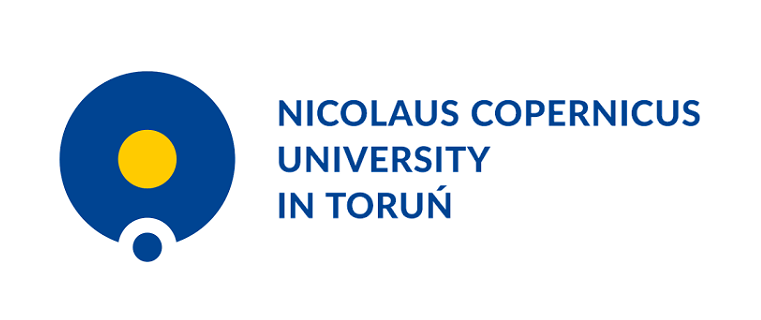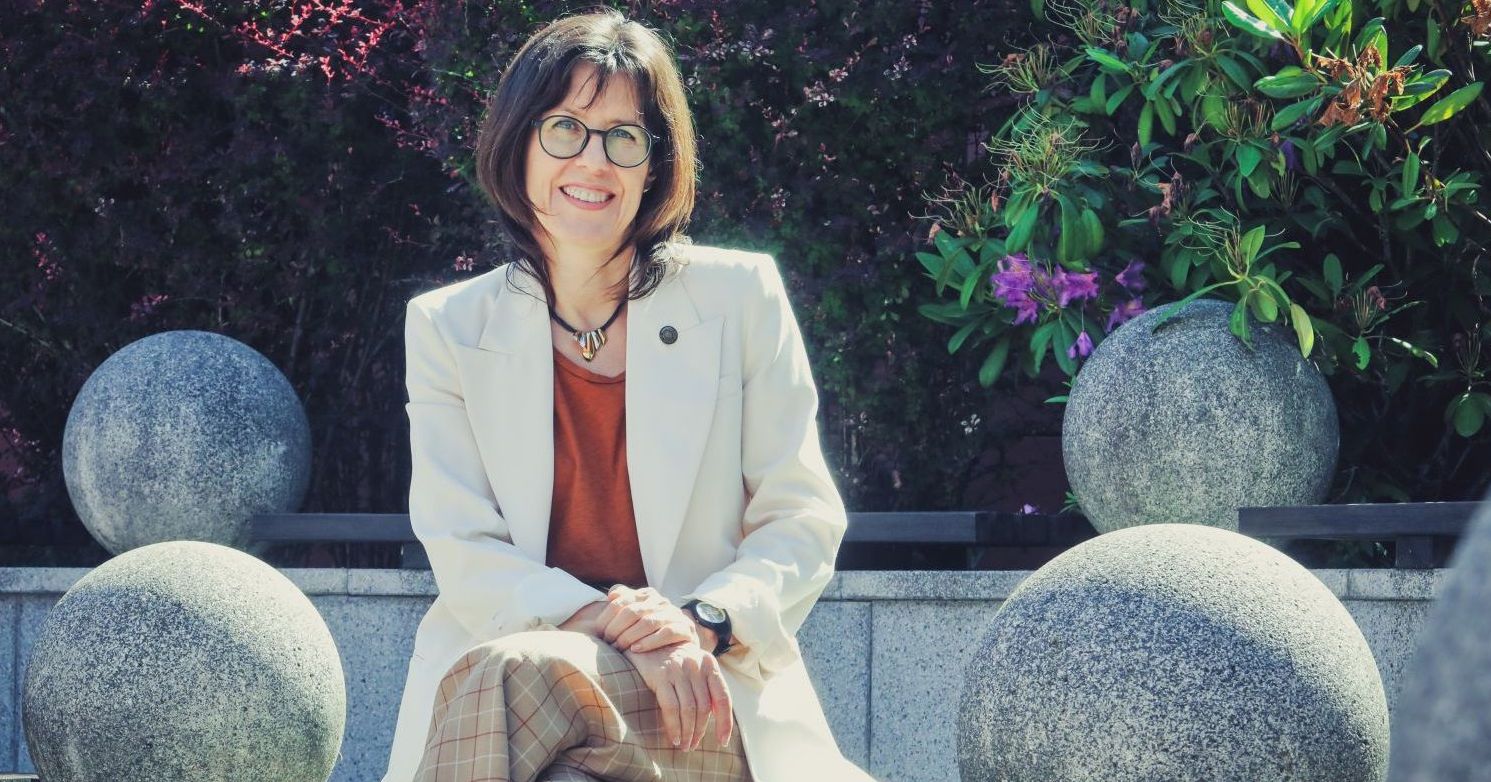 Social sciences
Social sciences
Artificial Intelligence in prevention of dementia
The application of Artificial Intelligence may be helpful in predicting early dementia. The researchers from NCU and Center for Advanced Intelligence Project RIKEN (RIKEN AIP) in Tokyo are working on creation of digital neuro-biomarkers of disease and non-pharmacological cognitive interventions which will slow it down.
For almost two years, the researchers from The Faculty of Philosophy and Social Sciences, NCU have been closely cooperating with the researchers from RIKEN AIP. The platform for carrying out the research at the University in Toruń was a project in the research field PeCoLA (Perception, Cognition, Language). Today, the mutual research overlaps with another research area – Culture, Development and Wellbeing. Both EF projects are supervised by Bibiana Bałaj, PhD.
RIKEN AIP center is a part of RIKEN, the largest and almost entirely financed by the government of Japan research institute. It is famous for high quality results in various research disciplines in physics, chemistry, biology, genomics or medical sciences – ranging from basic research to practical applications. It was founded in 1917 and it is now a network of world research centers all over Japan, comprising almost 3000 scientists in seven campuses cooperating with almost 500 partners.

The research carried out in Toruń is supervised by Tomasz Komendziński, PhD, from the Department of Cognitive Science in the Institute of Research on Information and Communication. Tomasz M. Rutkowski, PhD, is in charge of the research on the Japanese side, and he has already been to UNC twice within the mobility program competitions.
Our cooperation has led to the creation of mutual and novelty experimental paradigms which are used in the research in Japan and in Poland, study visits of both parties, publications and conference presentations. In the near future, we believe that we will be able to invite Polish students for internships in Tokyo, especially those who are involved in the research - explains Tomasz Rutkowski, PhD. - The results of our pioneering research project are already very promising, and they confirm the possibility of creating a sound tool that will predict early stages of dementia in various cultural environments of Japan and Poland. We are not finishing the job, and we want to enlarge its range towards practical applications of AI for the social wellbeing.
To social wellbeing
- Our research relates to early diagnostics of dementia and tracing cognitive, non-pharmacological interventions which prevent from development of old age-related dementia. We are running this research under the name AI for social good, which means practical applications "AI for social wellbeing" – explain Tomasz Komendziński, PhD, and Tomasz M. Rutkowski, PhD.

The Polish-Japanese project, initiated by both scientists, assumes help in applications of machine learning for forecasting early deterioration of cognitive functions, which may lead to serious old age dementia. Early diagnostics makes it possible to stop or delay symptoms of dementia. This is important from a few perspectives; it allows to predict the need of financial resources for healthcare, which is a burden for national healthcare systems, and to support good functioning of a family of a multi generation model. It also allows to avoid exclusion, which deepens negative results of disturbed aging process.

Tomasz Komendziński, PhD, and Tomasz M. Rutkowski, PhD explain that the brain-computer interface (BCI) and efficient algorithms of machine learning will help create digital neuro-biomarkers, due to which we will be able to predict early stages of symptoms of mild cognitive disorders in middle aged people. Owing to this, non-pharmacological cognitive interventions will be applied in order to prevent old age dementia.
- We usually think that the symptoms of dementia relate to people in their 60s or 70s. What we really aim at is to find such a bio marker in the brain which will show us the total beginning of the disease. Therefore, we aim at people at the age of 45 – explains Tomasz Rutkowski, PhD. – people at that age are still young enough to see that the change of their lifestyle to improve its quality in the future may be the way to stop or delay the development of cognitive disorders leading to dementia.
In our opinion, it is not aid in creating new medicines – explains Tomasz Komendziński, PhD. – We want to create new models of behavior and monitor their effectiveness as personalization of cognitive interventions is very crucial for effective promotion of changes in the lifestyle. The sooner and more effectively we start to act, the bigger chances there are to reinforce our cognitive and brain reserves and to improve our wellbeing.
Brain research
During the pilot study 35 seniors were examined in Japan, before the pandemic, and last year another 30 volunteers at the University in Torun.
- On the Polish side, the research involved seniors from the House of Initiatives. We also got into cooperation with the National institute of Senior Economy and the University of the Third Age – says Tomasz Komendziński, PhD. – On the Japanese side, it was more complicated as there are still a lot of Covid-19 restrictions, therefore personal meetings with seniors were not easy to organize. Still, we managed.

The part of the project carried out in Toruń is powered by cognitivists, psychologists, interested mainly in the developmental and functional condition of cognitive functions. In Japan, the researchers deal with the more engineering part of the experiment – they began their work from the research on the brain activity (EEG) and creating novel methods of machine learning for brain waves analysis.
- With time, due to the experience in behavioral research of the scientists from Toruń, we will enlarge our repertoire with eye tracking, which is the technology that serves to trace the movements of the eyeball or the gaze (gaze studies). The methods of machine learning created by RIKEN AIP team in Tokyo are perfectly suited for this purpose – says Tomasz Rutkowski, PhD. – Withing adding further modalities, we want to start research with the application of fragrance.
The equipment is ready. Olfactometer, which was financed with EU funds for "Medicine and human health. Interdisciplinary program of Kujawy-Pomorze region for personalized diagnosis and healthcare" allows to simultaneously register EEG and fMRI signals during olfactory stimulation. It is important that both the Polish and Japanese parties use the same equipment. Due to this, the data collected will be more convincing, better explained and they are much easier to compare.
The scientists are going to expand not only methods and research tools, but also geographical range. They want to go beyond Poland and Japan, towards wider intercultural research. Some elements of prepared experimental paradigms allow to be used beyond the research on dementia. This endeavor has been undertaken by a team supervised by Dr. habil. Akardiusz Gut, NCU professor (The Department of Cognitive Science) with reference to mindreading.
Domestic research
An advantage of the solutions suggested by the Polish and Japanese scientists is the facility and comfort of the research to be carried out in the future. Therefore, even though the research is carried out with the application of professional scientific equipment which guarantees high quality of data and replicability, at the same time simple and more affordable equipment is being tested
We do take into consideration the use of simpler and more wearable measuring equipment in the near future. They will also be cheap, thus more easily available. It is important – we want the technology that we are now developing to be usable in domestic conditions – explains Tomasz Komendziński, PhD.
- The examination in health care centers and clinics is usually accompanied by stress which may interfere with the results. Costs are also taken. Therefore, the scientists are aiming to make it possible for everyone to test at home if certain neuro-bio markers exist in EEG – just like we now take temperature or measure blood pressure – adds Tomasz Rutkowski, PhD. We believe that this test may be more credible then.
Ambitious plans
The researchers are now on an advanced stage of preparing a project agreement which will regulate the issues of sharing experimental data, copyright, and that will draw general rules of research cooperation. It will also make it possible for NCU students involved in the project to take part in internships in RIKEN AIP at the invitation of the Japanese partner.
Within the cooperation, the scientists from both centers are planning to organize workshops in Toruń in the last week of September, 2023. This will be a continuation of the events organized in Japan at the end of 2022. (First International Workshop on Complex Systems Science & Health Neuroscience, Doshisha University and Workshop on AI Application for Dementia - Machine Learning, Robotics and Health Neuroscience Approaches for Aging Societies, Tokyo, RIKEN AIP). The event in Toruń will also have a part on mathematical fundaments of machine learning, as an issue of importance for many research groups in RIKEN AIP
More about the results and Polish-Japanese cooperation:
Japanese-German-Polish Workshop on AI Applications for Dementia – Machine Learning, Robotics and Health Neuroscience Approaches for Aging Societies (RIKEN AIP, Tokyo, December 2, 2022:
https://aip.riken.jp/events/event_146850/
Embassy of the Republic of Poland on the visit and workshop in Tokyo with the participation of the Ambassador:
First International Workshop on Complex Systems Science & Health Neuroscience (Doshisha University, November 28, 2022):
 NCU News
NCU News







 Social sciences
Social sciences